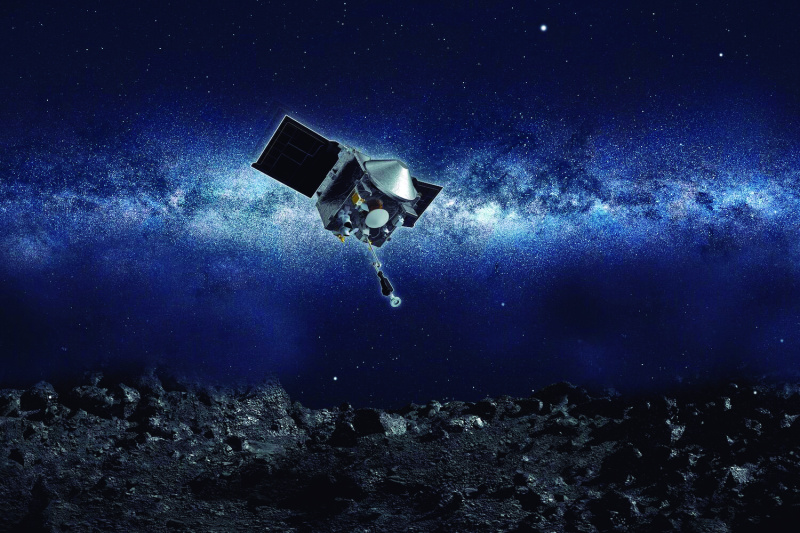On Sunday, for the first time in its history, NASA was able to bring a sample from an asteroid to Earth, which could provide unique information about the origin of life and the formation of the solar system.
As zap.aeiou.pt reported, a NASA capsule containing samples from the asteroid Bennu landed at 08:52 local time in the Utah desert in the United States, putting an end to a seven-year journey.
This was the first time that the American space agency was able to collect samples from an asteroid. The Japanese Aerospace Exploration Agency was able to recover the remains of the asteroid in 2020, but in small quantities.
NASA’s mission, called Osiris-Rex, hopes to collect 250 grams from the asteroid Bennu, although that will not be known with more certainty until the capsule is opened in two days.
Experts believe that the asteroid Bennu contains particles dating back to the formation of the solar system 4,500 million years ago, and that it could provide some answers to questions that have interested humanity for centuries, such as the origin of life and the solar system itself. .
Asteroid Bennu is the most dangerous in the solar system. We don’t have to be here to witness it anymore, but we can always mark it on the calendar: September 24, 2182 will be the day asteroid Bennu is most likely to collide with Earth within the next 300 years. The probability of impact is only 0.057%, or one in 11,750. On September 24, 2182, Bennu will have a 0.037% chance of colliding with Earth, or one in 2,700. Previous calculations suggested a chance of one in 2,700. By the year 2200.
NASA broadcast the landing process live, and the most exciting moment was when the parachute was deployed, allowing the capsule to reduce its speed and prevent it from colliding with the desert.
“Welcome home,” Noelia Gonzalez, of NASA’s communications team, said upon her arrival.
The journey began in 2016, when the Osiris-Rex probe left the NASA Center in Cape Canaveral, Florida. He arrived in Benue in 2018.
The text was originally published in the print edition of Expresso das Ilhas No. 1139 of September 27, 2023.

“Coffee trailblazer. Social media ninja. Unapologetic web guru. Friendly music fan. Alcohol fanatic.”

